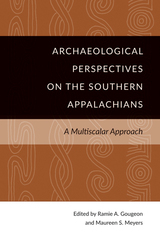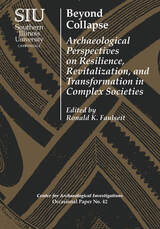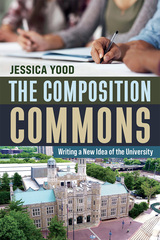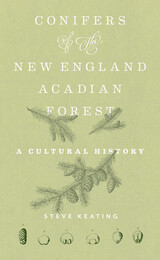2 books by Meyers, Maureen

Archaeological Perspectives on the Southern Appalachians
A Multiscalar Approach
Ramie A. Gougeon
University of Tennessee Press, 2015
In the last four decades, southeastern archaeology has increasingly developed a processual method of looking at archaeological data through varying levels of scale. By adjusting the scale, archaeologists can further define societal interactions and exchanges, which is particularly useful to those researching the Mississippian period, as the rise and fall of chiefdoms was both internally complex and externally influenced by broader regional factors. This use of the most current research methods has enabled a more comprehensive understanding of prehistoric and historic sociopolitical entities.
In Archaeological Perspectives of the Southern Appalachians, Ramie A. Gougeon and Maureen S. Meyers have brought together a dozen archaeologists to delineate multiscalar approaches to Native American sites throughout southern Appalachia. The essays range in topic from ceramic assemblages in northern Georgia to public architecture in North Carolina to the frontiers of southern Appalachia in Virginia. Throughout the volume, the contributors discuss varying scales of analysis in their own research to flesh out the importance of maintaining different perspectives when evaluating archaeological evidence.
Additionally, the volume makes particular reference to the work of David Hally, whose influence on not only the editors and contributors but on southeastern archaeology as a whole cannot be overstated. While Hally was neither a pioneer nor vocal champion of scale variation, his impeccable research, culminating with the publication of his magnum opus King: The Social Archaeology of a Late Mississippian Town in Northwestern Georgia paved the way for younger scholars to truly develop research methods for holistic social archaeology.
In Archaeological Perspectives of the Southern Appalachians, Ramie A. Gougeon and Maureen S. Meyers have brought together a dozen archaeologists to delineate multiscalar approaches to Native American sites throughout southern Appalachia. The essays range in topic from ceramic assemblages in northern Georgia to public architecture in North Carolina to the frontiers of southern Appalachia in Virginia. Throughout the volume, the contributors discuss varying scales of analysis in their own research to flesh out the importance of maintaining different perspectives when evaluating archaeological evidence.
Additionally, the volume makes particular reference to the work of David Hally, whose influence on not only the editors and contributors but on southeastern archaeology as a whole cannot be overstated. While Hally was neither a pioneer nor vocal champion of scale variation, his impeccable research, culminating with the publication of his magnum opus King: The Social Archaeology of a Late Mississippian Town in Northwestern Georgia paved the way for younger scholars to truly develop research methods for holistic social archaeology.
[more]

Beyond Collapse
Archaeological Perspectives on Resilience, Revitalization, and Transformation in Complex Societies
Edited by Ronald K. Faulseit
Southern Illinois University Press, 2015
The Maya. The Romans. The great dynasties of ancient China. It is generally believed that these once mighty empires eventually crumbled and disappeared. A recent trend in archaeology, however, focusing on what happened during and after the decline of once powerful societies has found social resilience and transformation instead of collapse. In Beyond Collapse: Archaeological Perspectives on Resilience, Revitalization, and Transformation in Complex Societies, editor Ronald K. Faulseit gathers scholars with diverse theoretical perspectives to present innovative approaches to understanding the decline and reorganization of complex societies.
Essays in the book are arranged into five sections. The first section addresses previous research on the subject of collapse and reorganization as well as recent and historic theoretical trends. In the second section, contributors look at collapse and resilience through the concepts of collective action, eventful archaeology, and resilience theory. The third section introduces critical analyses of the effectiveness of resilience theory as a heuristic tool for modeling the phenomena of collapse and resilience. In the fourth section, contributors examine long-term adaptive strategies employed by prehistoric societies to cope with stresses. Essays in the fifth section make connections to contemporary research on post-decline societies in a variety of time periods and geographic locations.
Contributors consider collapse and reorganization not as unrelated phenomena but as integral components in the evolution of complex societies. Using archaeological data to interpret how ancient civilizations responded to various stresses—including environmental change, warfare, and the fragmentation of political institutions—contributors discuss not only what leads societies to collapse but also why some societies are resilient and others are not, as well as how societies reorganize after collapse. The implications of the fate of these societies for modern nations cannot be underestimated. Putting in context issues we face today, such as climate change, lack of social diversity, and the failure of modern states, Beyond Collapse is an essential volume for readers interested in human-environment interaction and in the collapse—and subsequent reorganization—of human societies.
Essays in the book are arranged into five sections. The first section addresses previous research on the subject of collapse and reorganization as well as recent and historic theoretical trends. In the second section, contributors look at collapse and resilience through the concepts of collective action, eventful archaeology, and resilience theory. The third section introduces critical analyses of the effectiveness of resilience theory as a heuristic tool for modeling the phenomena of collapse and resilience. In the fourth section, contributors examine long-term adaptive strategies employed by prehistoric societies to cope with stresses. Essays in the fifth section make connections to contemporary research on post-decline societies in a variety of time periods and geographic locations.
Contributors consider collapse and reorganization not as unrelated phenomena but as integral components in the evolution of complex societies. Using archaeological data to interpret how ancient civilizations responded to various stresses—including environmental change, warfare, and the fragmentation of political institutions—contributors discuss not only what leads societies to collapse but also why some societies are resilient and others are not, as well as how societies reorganize after collapse. The implications of the fate of these societies for modern nations cannot be underestimated. Putting in context issues we face today, such as climate change, lack of social diversity, and the failure of modern states, Beyond Collapse is an essential volume for readers interested in human-environment interaction and in the collapse—and subsequent reorganization—of human societies.
[more]
READERS
Browse our collection.
PUBLISHERS
See BiblioVault's publisher services.
STUDENT SERVICES
Files for college accessibility offices.
UChicago Accessibility Resources
home | accessibility | search | about | contact us
BiblioVault ® 2001 - 2024
The University of Chicago Press









